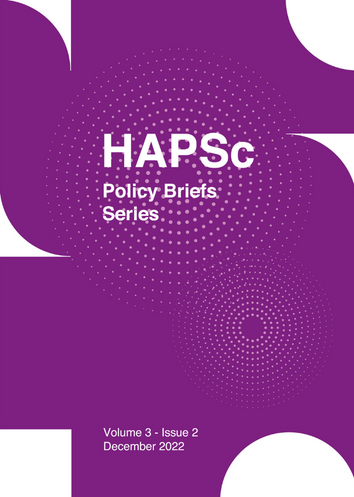Emancipation Τhrough Εducation: The Galician Women's Rights Activist Anastazja Dzieduszycka (1842-1890)

Abstract
Contemporary new approaches to political history take into account – in addition to typical issues related to the state and its representatives – the history of women and the history of gender. Currently, as Barbara Stollberg-Rilinger puts it, the notion of politics is also understood as the space of action within which decisions binding for the collective are made and implemented. Historically, what was political had definite boundaries and was shaped in different ways. The contemporary, broader understanding of the political makes it possible to include in the sphere of public communication also those social groups that had limited opportunities for political action. Therefore, as postulated by Ute Frevert, the previous activities of women who were considered “apolitical” should be reinterpreted, because taking into account the dynamics and historical volatility of the communication space will allow for examining women’s involvement in the public sphere. The main aim of the considerations is to reconstruct women's activity (still constituting the margin of historical research) on the example of the work of Anastazja Dzieduszycka, a Galician activist for the education and emancipation of women. This primary objective is related to secondary ones. One of them is to show the seeds of the emancipation movement in Galicia. Dzieduszycka is one of the first suffragists who made a lot of effort to break the existing schemes, stereotypes, social barriers and existing culture. She made the first important step towards modern thinking about women. Unveiling her precursory thinking and actions in this area is one of the most important goals of the analysis. My research includes the following conclusions: Dzieduszycka’s pioneering activity proceeds from the starting point, which is the education of teaching staff in new institutes established for this purpose. Thanks to this, young women were raised to independence, which was forced by the hard social and economic situation in which they found themselves. The final goal, however, was the emancipation of women.
Article Details
- How to Cite
-
Citkowska-Kimla, A. (2022). Emancipation Τhrough Εducation: The Galician Women’s Rights Activist Anastazja Dzieduszycka (1842-1890). HAPSc Policy Briefs Series, 3(2), 31–50. https://doi.org/10.12681/hapscpbs.33780
- Section
- Articles

This work is licensed under a Creative Commons Attribution 4.0 International License.
Authors retain copyright and grant the journal right of first publication with the work simultaneously licensed under a Creative Commons Attribution License that allows others to share the work with an acknowledgement of the work's authorship and initial publication in this journal.

